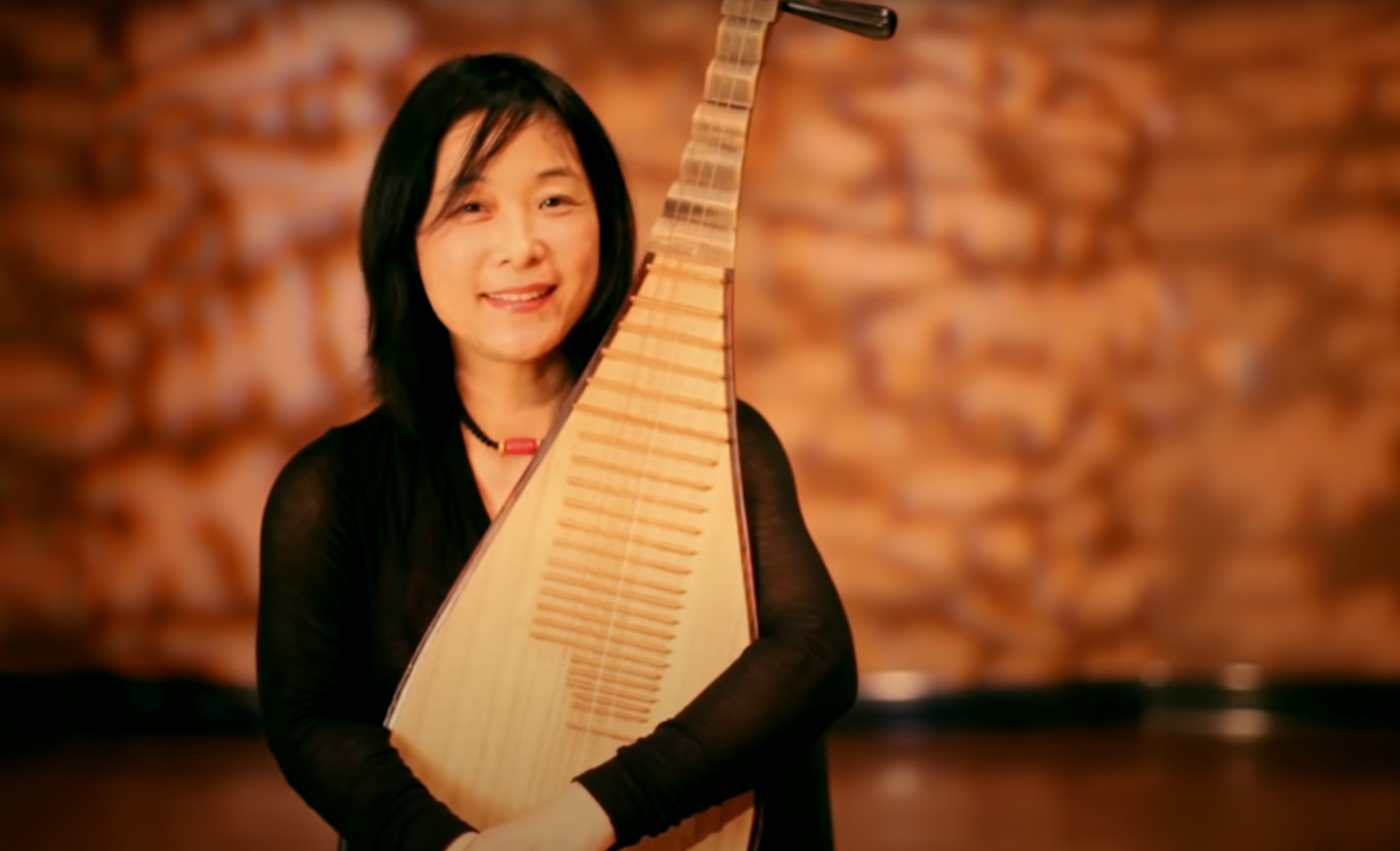Wu Man: The Power of the Pipa
Wu Man is a one-woman pipa promoter. The renowned GRAMMY-nominated pipa virtuoso travels the world playing this ancient Chinese instrument with orchestras, in chamber groups and as a soloist. You can hear her in everything from Kung Fu Panda 3 to a solo performance with the China National Centre for Performing Arts Orchestra in Beijing.
At Norfolk, she will be joined by pianist Melvin Chen and Norfolk Fellow cellist Cheng Allen Liang for the world premiere of The heart is deeper than the ocean by Norfolk alum Angel Lam. The work, commissioned by the Festival as part of its Musical Bridges project, will be performed on July 6. The event, which is free to the public, will feature a performance of the work followed by a discussion with the composer and artists, and lastly, a recap performance.
A lute-like Chinese instrument, the pipa has been around for over 2,000 years. Its name harkens back to its earliest iterations in the Qin and Han Dynasties (221 B.C – 220 A.D.) when the forward and backward plucking motion sounded like “pi” and “pa.” Today’s long-necked instrument has 26 frets. The four strings are tuned to ADEA.
[Scroll below to view a video of Wu Man performing White Snow is Spring.]
Wu Man began playing the pipa when she was 9. Her parents, who love traditional music, chose the instrument for her. “My parents said it’s good for a girl to play,” she laughs. “I had no choice.”
She initially hated it. “It’s a very demanding instrument, like a guitar but harder,” Wu Man says. “The right hand has so many techniques and the left hand has a lot of ornamentation.”
But then three years in to her pipa lessons, Wu Man’s feelings shifted as she started to be able to play more tunes. “I felt this instrument is me. I like the color of the sound,” she says. “The style of the instrument can be very elegant but it can also be percussive and dramatic. I really enjoyed the two sides of this instrument’s personality.”
Showcasing the pipa’s breadth and possibilities became part of Wu Man’s musical mission. Part of that decision was a question of practicality. For much of its history, pipa music was passed on by oral tradition. It wasn’t until the 19th century that some notation began, Wu Man says, adding that there were only 15 pipa pieces ever written.
“I thought I can’t only play 15 pieces,” she says. “I wanted to explore more.” Coming to the United States opened her ears to many different cultures. “I heard jazz. It was the first time I had heard African music. I felt wow I want to expand this instrument.”
Wu Man began working with composers. “That opened my mind and I began looking for the possibilities of this instrument besides playing traditional music,” she says. “I also did this for myself. I want to be a musician, not just a traditional Chinese musician.”
Wu Man’s successes in her goal are impressive. She is a founding member of the Silkroad Project and has performed throughout the U.S., Europe and Asia with the Silkroad Ensemble.
[Scroll below to view a video of Wu Man and the Silkroad Ensemble.]
Wu Man also has commissioned contemporary pipa music and has worked with composers ranging from Philip Glass and Terry Riley to Bright Sheng and Tan Dun. She has also collaborated with the Kronos Quartet and Shanghai Quartet.
The pipa, Wu Man says, is especially suited to chamber music. “I’m plucking while others bow, so there are different colors,” she says. “But it’s not a guitar so there is a certain flavor that’s different. It makes music more interesting. It’s like creating a future tradition, not this is American music or Chinese music but something different.”
“If you look around, there are a lot of different cultures in the U.S. That is the future,” she adds. “That’s why I still keep busy to do what I can to introduce this music, this awesome instrument, and the culture to audiences.”






